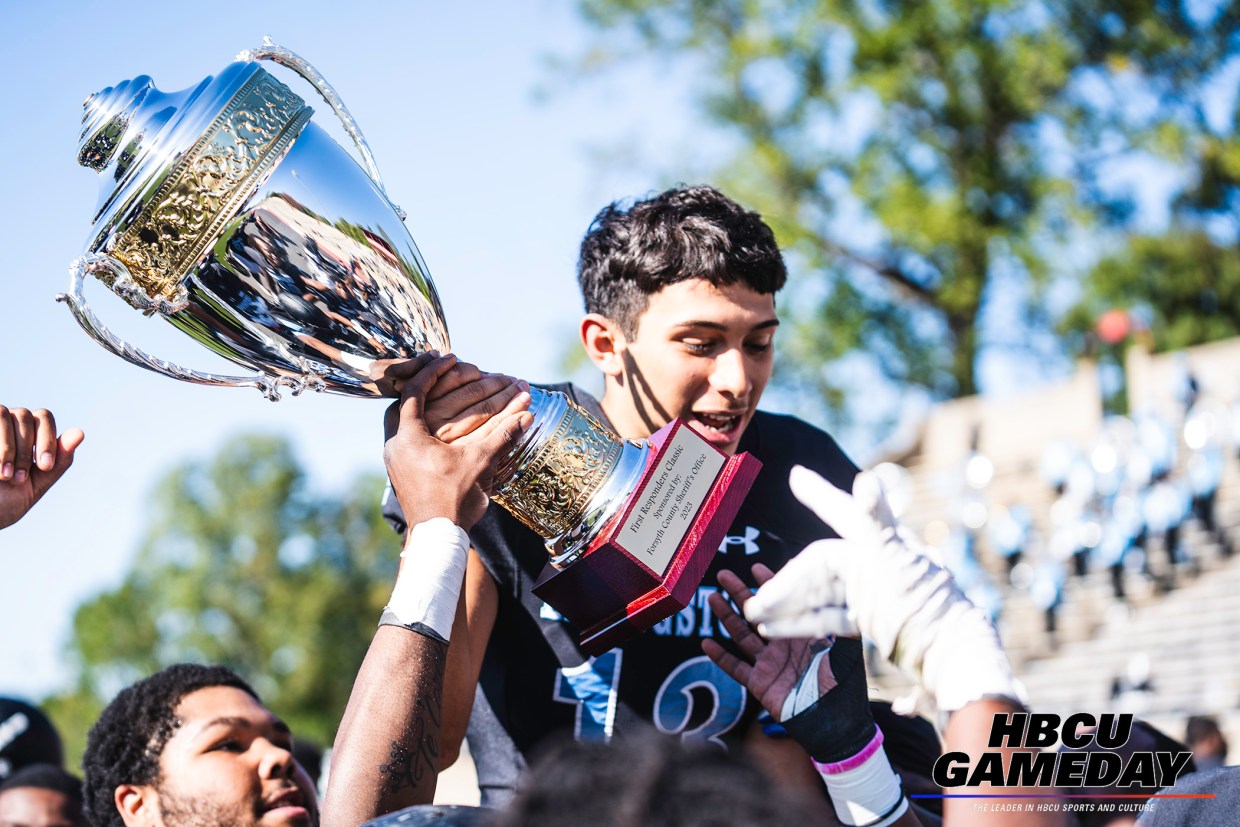ATLANTA –Dr. Anthony J. Davis Sr., President of Livingstone College, talked about everything from sports betting money for his private HBCU to his school’s newly-announced donation in a recent trip to the HBCU Gameday studios. This significant contribution, from an anonymous donor, stands as one of the largest outright gifts to any private HBCU in North Carolina.
Dr. Davis highlighted the importance of stewardship in securing such gifts, stating that the most recent gift was the latest in a series from the same donor. He also emphasized that all of the money reported has been deposited.
“We would not have received additional gifts had we not been good stewards with the first million,” he stated, emphasizing the donor’s continued faith in Livingstone College’s vision. He noted that the money had been received and processed.
This vision includes comprehensive improvements to student housing, the cafeteria, and overall campus infrastructure, marking a new era for the institution.
Dr. Davis addressed a pressing issue facing private HBCUs in North Carolina: access to state gambling funds for athletics. Public institutions in the state (including Elizabeth City, Fayetteville State and Winston-Salem State) benefit from substantial allocations from sports betting revenues, a privilege not extended to private HBCUs like Livingstone College as well as Johnson C. Smith, Shaw University and Saint Augustine’s University. Davis is pushing back on that.
“They’ll give every state school in the CIAA a million dollars from the lottery money, but they say the privates can’t participate,” he noted, calling for equitable treatment from state legislators.

Dr. Davis pointed out that a significant portion of Livingstone’s student body hails from North Carolina, making them constituents deserving of similar support. HBCU Gameday’s reporting on the matter underscores the disparity in funding and the need for policy changes to ensure all HBCUs can thrive.
Athletics also play a pivotal role at Livingstone College, with nearly half of the student population participating in sports. Dr. Davis expressed his commitment to enhancing the athletic program, focusing not just on wins and losses but on maintaining a competitive spirit.
“My challenge to him [Coach Sean Gilbert] is to put a competitive product on the field,” he said, underscoring the broader impact of athletics on school spirit and community engagement.
Another significant change under Dr. Davis’s leadership has been the implementation of a fee for alumni to enter the campus during homecoming last fall. Initially met with resistance, this initiative has proven successful in enhancing the overall homecoming experience.
“After alumni had the opportunity to see it and experience it, they said, ‘Wow, we needed to pay more,'” Dr. Davis shared.
The fee helps manage the influx of visitors and ensures that the campus remains clean and safe, contributing to a more organized and enjoyable homecoming for everyone, Dr. Davis explained. This approach also generated additional revenue, further supporting the college’s operational needs.
